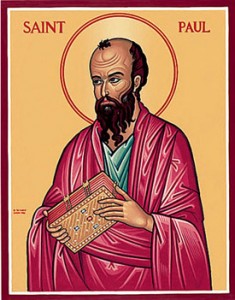
The sincere Roman Catholic will no doubt bristle at our summary of Tradition in our previous post:
The pattern for Rome is this: “we already know this to be true, so there is no error in creating evidence to support it.” This is why I call ‘Tradition’ the historical revisionism that it clearly is.
It is nonetheless a true, and verifiable statement. John Henry Cardinal Newman, one of the most famous converts to Rome from the Church of England, was a prolific writer and, after his conversion, a staunch apologist for Rome. He provides one of the best examples in recent memory of an apologist who was committed to the circularity of Roman epistemology: “we already know this to be true, so there is no error in creating evidence to support it.” When commenting on A Legend of St. Gundleus, Newman not only allows for adding fictional dialogues to the gospel narrative—he insists that it is necessary. Continue reading “Truth” received on no authority at all
 Follow
Follow
